|
"Last week we had my Climb ceremony. I got to hear feedback from staff and students about how I've done, a lot about the poor first impressions that I made and how I turned things around. I spoke about the work that I've done so far and why I think I'm ready for "Climb"... Last I talked about the challenges that I'm going to take on in Climb and my plans for my future. Finally, we roasted s'mores and that was the best part." - NSA student
0 Comments
The wonderful Daisy Rojas, the cultural coordinator of NSA, organizes trips to La Feria de Agricultor for our students. They are packed with fun, cultural immersion, and education! Students love to look around, interact with the locals and practice their Spanish. For many of them, it's their favorite part of the week!
Welcome to hte latest edition of Tranquilo News. Our guests were Marco Arce (Medical Coordinator) and Roy Vindas (chef). If you make it to the end, you'll enjoy the BEST (dad) jokes you've ever heard in Spanish! ;)
https://soundcloud.com/tranquilo-news/tranquilo-news-4 Final Reflection - Original Spanish Version
La clase de inmersión ha sido una de las clases más impactantes en la NSA. Tenía un conocimiento básico de español cuando llegué a la NSA, pero aprendí mucho más de lo que pensé que podía. Me di cuenta de que aprender un idioma es más que solo aprender las palabras. Tienes que entender la cultura de un lugar para entender el idioma. Aprendí sobre la comida, aprendí sobre la religión e incluso las plantas y los animales. Esto me hizo apreciar la diversidad del mundo. Creo que lo más importante que obtuve de la clase fueron las relaciones que hice con Daisy y los estudiantes. Hice algunos de mis recuerdos favoritos en su clase. Hicimos comida juntos, exploramos la ciudad e incluso vimos pájaros. Daisy y yo tuvimos algunas de las conversaciones más personales y útiles. Ella me ayudó a darme cuenta más sobre mí y lo que necesito hacer en mi vida. La clase de inmersión también me ayudó a hacer amistades con los otros estudiantes. Pasar tiempo con Luis me hizo darme cuenta de que es un buen amigo mío. También pude hacer amigos con mi familia anfitriona y el personal de Tico en la NSA. Esto me ayudó a estar más en mi comunidad. Lo último que me ayudó la clase de inmersión es mejorar mi español. Aprendí mucho más español y ahora puedo hablar con cualquiera sobre temas comunes. Esto me ayudó a tener más confianza en mí mismo y también me ayudó a ser más diverso. Cuando me vaya de la NSA quiero seguir practicando mi español con mi hermano porque él ha estado practicando su español. También quiero encontrar una comunidad en Los Ángeles para practicar mi español. Siempre recordaré a Daisy y su clase y siempre estaré agradecida por el tiempo que pasé con ella. Extrañaré esta clase y a todas las personas cuando salga de la NSA para ir a casa. Final Reflection - English Version The Immersion class has been one of the classes that has impacted me the most at NSA. I had a basic knowledge of Spanish when I arrived at NSA, but I learned much more than I thought I could. I realized that learning a language is more than just learning the words. You have to understand the culture of a place to understand the language. I learned about food, I learned about religion, and even plants and animals. This made me appreciate the diversity of the world. I think the most important thing I got from the class was the relationships I made with Daisy and the students. I formed some of my favorite memories in his class. We made food together, we explored the city and even saw birds. Daisy and I had some of the most personal and useful conversations. She helped me realize more about myself and what I need to do in my life. The immersion class also helped me make friends with the other students. Spending time with Luis made me realize that he is a good friend of mine. I was also able to make friends with my host family and Tico staff at NSA. This helped me to be more present in my community. The last thing that Immersion class helped me with is to improve my Spanish. I learned a lot more Spanish, and now I can talk to anyone about common topics. This helped me to have more confidence in myself and also helped me to be more diverse. When I leave NSA I want to continue practicing my Spanish with my brother because he has been practicing his Spanish. I also want to find a community in Los Angeles to practice my Spanish. I will always remember Daisy and her class and I will always be grateful for the time I spent with her. I will miss this class and all the people when I leave NSA to go home. "The Milieu" Newsletter by N.M. 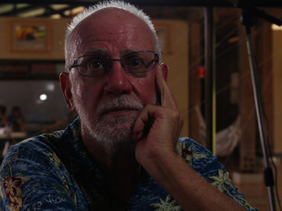 Here at New Summit Academy, the student body is blessed with an incredible opportunity to grow, make lifelong friends, learn new things and meet interesting people. In my time here, there is one who sets the bar of what it means to be interesting. His name is Stephen, a retired filmmaker and photographer who lives here in Atenas and volunteers his time at NSA to teach students The Art of Awareness, another name for photography class. When he was 10 years old, Stephen saw a movie called The 10 Commandments, which sparked his interest in filmmaking and photography. "It was fascinating," Stephen said as he goes through some photos he took of other teachers for the New Summit Academy website. "It was then that I realized that I wanted to be a filmmaker." However, he didn't take that seriously until he got to college. At that point, the fraternity he was in asked him to take photos of events that were being held and according to him, this is what really got the ball rolling. Throughout his life, Stephen has found that photography and filmmaking serve as his pathway to mindfulness and that these forms of expression are ways for him to stay in the moment. There's no better example of this then when he spent time in Vietnam. "I did a lot of dangerous shit when I was there," Stephen said. From spending time in firefights to hanging out of helicopters, there was always a chance of injury or death. Yet Stephen found that whenever he had his camera, none of this mattered. He had something that he calls "cinematic immunity". (Click "Read More"...) "The Milieu" Newsletter Article by K.M. As the holiday season proceeds in full swing back in the United States, many NSA students are excitedly preparing for flying home and spending time with family dur- ing the holiday. Andre, who is visiting home for the first time, said, "I'm looking forward to just being with my family and friends again."
But although most students are heading home, several are staying behind. Through no fault of their own, they haven't fulfilled the minimum time limit needed or the requirement of a successful in-country visit that needs to be completed before a home visit can happen. The holiday season is obviously a big time for family gatherings and connection. Being unable to go home for Christmas because of being at NSA has been a worry for students who are staying here during the break. Being here for Christmas isn't the most desirable option, but students are trying to think positively about it. "I mean, I'd rather be home, but we're not always where we want to be when we want to be there, so I'm going to make the best of it," Jack, a student sticking around over Christmas, said. Determined to make the holidays a pleasant time for everybody, NSA has organized several activities that will keep the students busy over the break. After graduation,, the students staying in Costa Rica during the holidays will load up a bus and depart for Arenal Volcano, located a few hours north of Atenas. "I've heard Arenal is going to be a more chill week, relaxing at hot springs, hanging out by pools, stuff like that," Nico said. "It should be a good time to chill out a bit after the end of the quarter." During this mini-aventura the week after graduation, students will spend time visiting Arenal Waterfall, standup paddleboarding on Lake Arenal, hiking across the lava flow, rafting on the Balsa River, and soaking in hot springs. (Click "Read More"...) "The Milieu" Newsletter Article, written by K.M. Here at NSA, students vote at the beginning of each quarter to determine a book that they will all read and discuss for the duration of the quarter. For Fall Quarter 2, students voted for Soccer In The Sun and Shadow, by Eduardo Galeano and translated by Mark Fried. The book goes in detail about specific positions, events, and players related to soccer. As part of the integrated reading program, students had an opportunity to interview Mark Fried about the book, Galeano, translating, and his personal life.
Q: What made you want to become a translator? A: At first it was the desire to share what I learned from living in Latin America, especially the perspective I gained on my own culture. Later on, I found that translating allowed me to use my writing ability creatively, without having to face the greater challenge of coming up with my own content. Q: How did you get into translating as a career? A: I was asked by Galeano and his agent to take a stab at translating “We Say No,” a collection of his speeches and journalistic writing. I liked it, they liked me, and we were off. I have done document translation sometimes to make money, and I am paid for the books I do, but I have never made a living at translation. I had too many other interests, and did translation on the side. Only since retiring from my day job two years ago have I worked at translation full time. And literary translation rarely pays well enough to support a family. Q: What were your first impressions of Galeano? A: My first impression was from reading “Open Veins of Latin America”. I thought he was a genius. Meeting him face-to-face, my first impression was that he was charismatic, gracious and kind. That proved to be true. (Click the "Read More" link...) World Travel Hampered by Recent Attacks in Paris "The Milieu" Newsletter, written by E.M. (After the series of terrorist attacks in France on November 13, airports were slowed to a near standstill. Hundreds of people remained in lines for hours, backed up by heightened security and bag checks. Marshable.com reported thousands of tourists stuck in Paris. Ever since 9/11, the United States and the rest of the world have amped up on security, specifically on airport and plane security. All who have flown domestically or internationally from the States knows how tedious and how painful security is. Having to take off your shoes, remove your laptop from your bag, walk through the full body scanners and then hastily put it all back together is difficult and adds unnecessary stress.
This rise in security is driven in large part by the recent increase in terrorism. November's attacks in Paris are likely to prompt a permanent addi- tion to security there, similar to the US, UK, and Spain after their own attacks. You're walking through the airport, you scan your bags, you get scanned yourself, and then the guard pulls you out of line and goes through your bag. The officer leaves it a mess so you need to reorganize it. Then, on the six hour flight, you get a little rice, a small cut of meat, and a packaged brownie.For anyone under twenty, this is normal, but others ask, "what happened to the good old days?". What happened to the days of free champagne flowing from glass bottles, the full meals given on flights, the ability to walk straight through the airport in 10 minutes without a security stop? The answer is simple: 9/11 happened, and air- lines were deemed unsafe without security. (Click "Read More"...) "The Milieu" Newsletter Article written by N. The Patriot Act, suspension of civil liberties, and the mass phone data collection done by the National Se- curity Agency are all things that occurred as a direct result of the September 11th attacks. When tragedies like terrorist attacks strike nations, the victims and their country tend to forget their principles and look solely for ways to prevent future attacks from occurring. This leads to an erosion of civil liberties and a government which possesses too much power over its citizens.
There is no better example of this than what is happening in Belgium. The army is patrolling the streets, searching people going into public spaces; the government has clamped down on the Belgian peo- ples' daily lives. France's 3-month state of emergency, reinstating money to previous cuts for military spending, the installation of a curfew, and the complacency of the French people after the Paris Attacks all show a similar pattern to the United States after 9/11. (Click the "Read More" link...) "The Milieu" Newsletter Article by J.S. 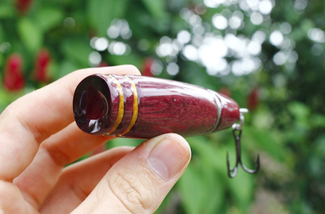 Anyone walking onto the NSA campus will notice the garden, an evident expression of creativity. Recently, Ryan has implemented a mas- sive bamboo trellis in the garden that will soon host different species of chayote. "Squash grow as a vine so they need some- thing to latch onto. They scale the pillars up to the top," explained Ryan. "They love it up there. After a while they will scale the wires too and create a tangled roof." The drape of vines will block out sun, creating a par- tially shaded environ- ment below where Ryan plans to grow plants like cucumbers. Sam has also invested notable effort into his hand-made series of fishing lures. Several months ago, he began carving and lacquering lures for his own personal use, and has since begun carving and selling custom lures to people in and outside of the NSA community. He has taken professional quality photographs of his products with the help of a photographer, is creating a website for himself, and is writing an article to submit to Flori- da Sportsman magazine to acquire more publicity for when he returns to his home in Vero Beach. His efforts have also helped solidify Art Club, a venue that al- lows students to work with their hands and is growing in popularity. However, not all of the projects taking place on campus are as conspicuous as Sam's lures or Ryan's trellis. "The Milieu" Newsletter Article by K.M. 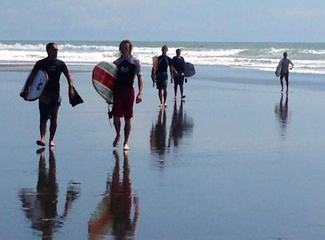 Anticipation was heavy in the air the morning after Thanksgiving as a group of seven students and three staff loaded themselves into a blue Hyundai van parked outside the dining hall. With two stacks of surfboards strapped on top and several boogie boards nestled inside, they set off, reggae music flowing freely. Their destination: warm sand, swaying palm trees, rolling waves and a long weekend of relaxed fun at El Hotel Pelicano. Hotel Pelicano is located in Puntarenas, about thirty minutes outside of Jaco. The main office and restaurant sat directly on the beach of Esterillos Este, giving a clear and dazzling view of the ocean at all times, perfect for surfers. Upon arrival, the group quickly unloaded the van of luggage and surfboards, set their stuff down in their rooms, and then donned sun- screen and rash guards and dashed into the waves with boards in hand. The waves weren't perfect, but eve- rybody in the group managed to catch one and stand up. Surfing is a big part of the culture at NSA, with surf club consist- ently ranking as the most popular club with the most members in- volved. Normally, the club gets to hit the beach once every few weeks, so the opportunity for three days straight was exciting for many students. "Having the chance to surf for three days straight made me grow stronger with my homies, and I had a really good time," Charlie said. "It was also great not having to wait two weeks to craft the art of surfing." Staff were also very excited for the weekend. Kelly, a therapist at NSA, took up surfing soon after she moved to Costa Rica, and she con- siders it to be one of her favorite activities here. "It really keeps me focused, and it's a great lesson in humility." Kelly said. On the second day at Esterillos Este, the group woke up bright and early at 5 a.m. and was in the water by 5:30 a.m., surfing under the pink and gold light of the sunrise. Many said this was their favorite time they spent in the water. (Click "Read More"...) |
AuthorsNSA Students Archives
March 2021
Categories
All
|
This website was made by students and staff at NSA. All pictures are real photographs taken from student experiences at NSA.
We hope you appreciate our authenticity and transparency - they are our best qualities!
© Entire website is copyrighted property of New Summit Academy - Thank you for respecting our intellectual property!
We hope you appreciate our authenticity and transparency - they are our best qualities!
© Entire website is copyrighted property of New Summit Academy - Thank you for respecting our intellectual property!
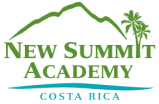
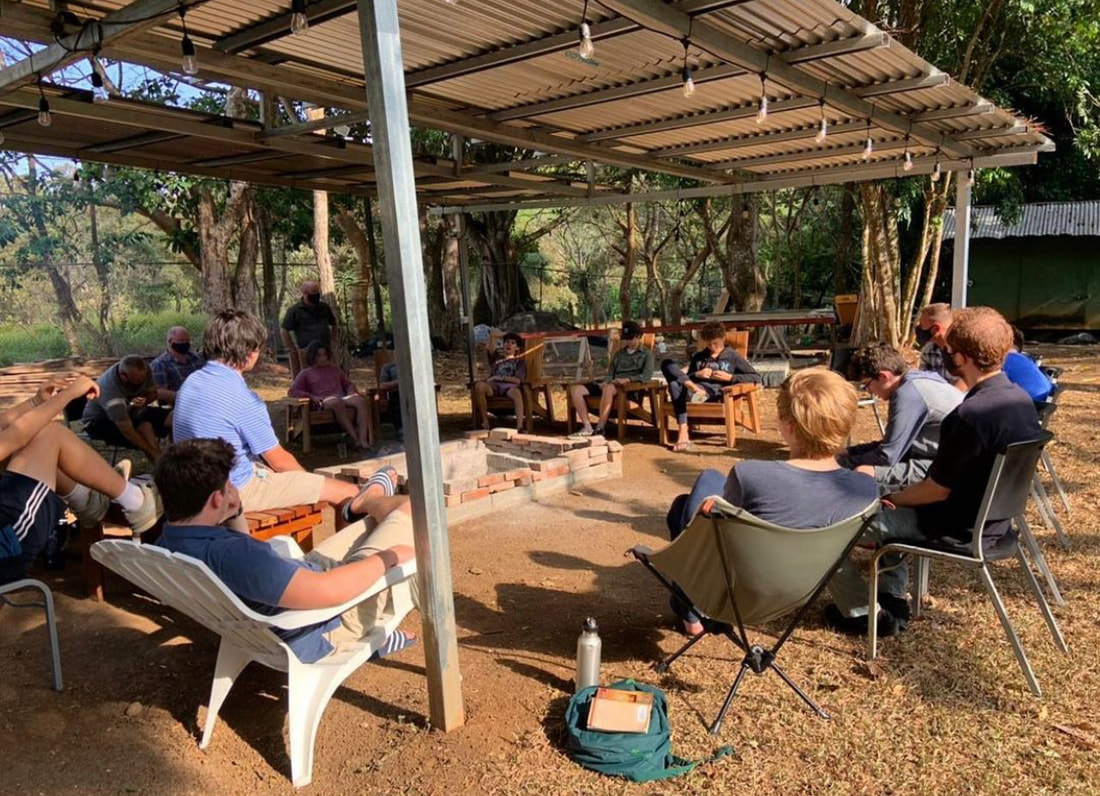
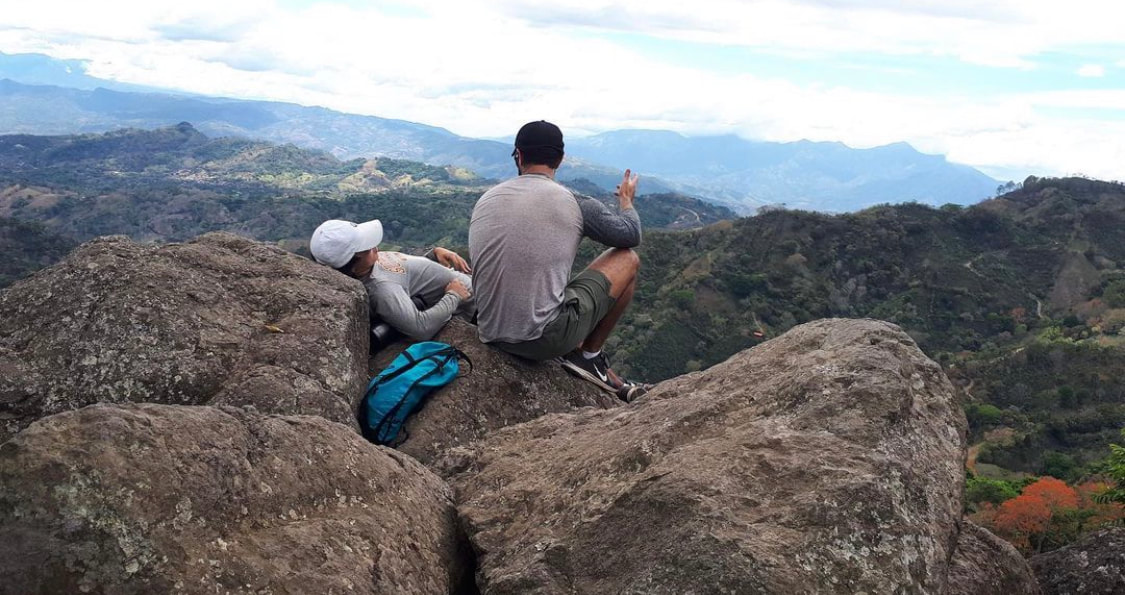
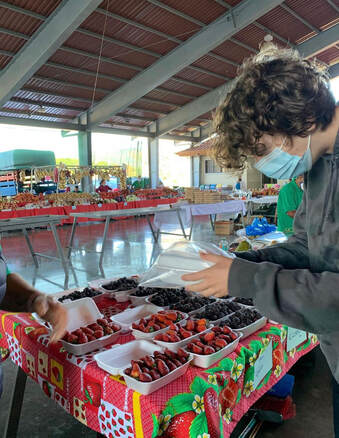
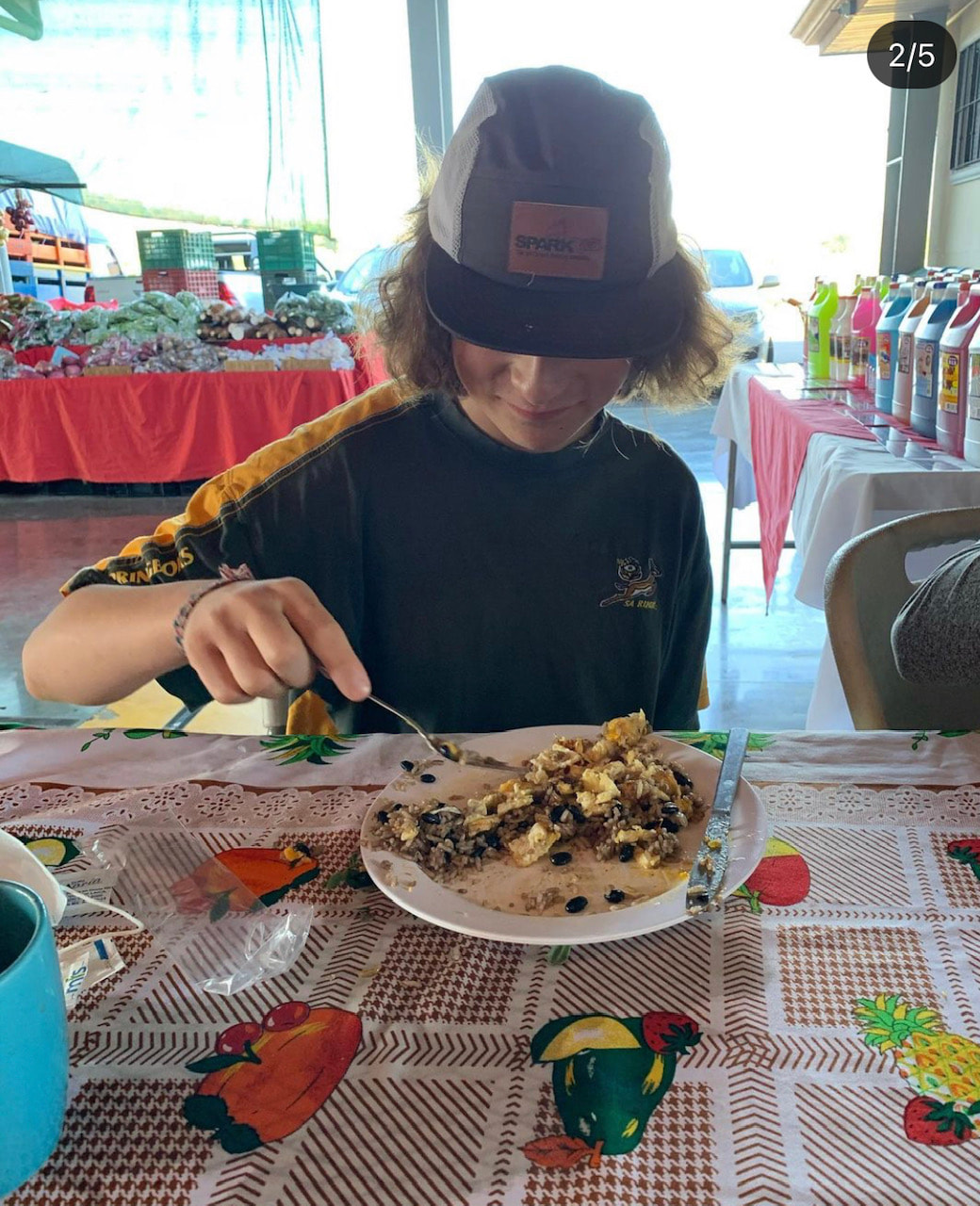
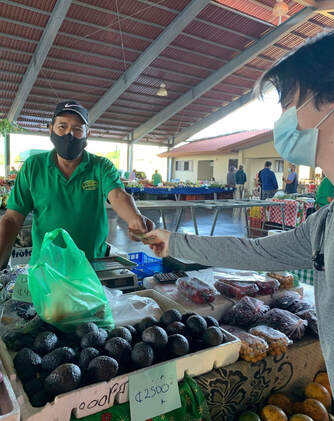
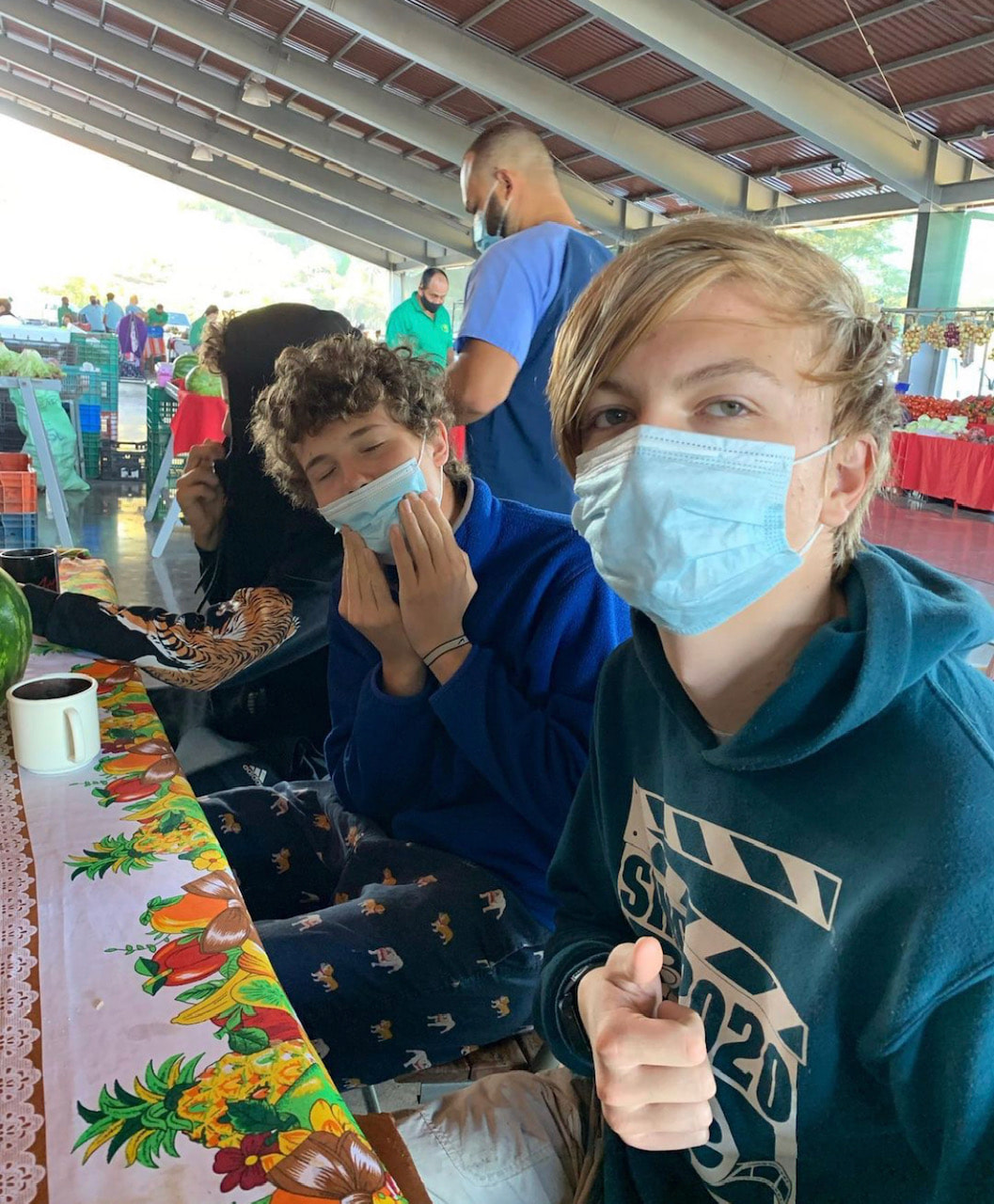
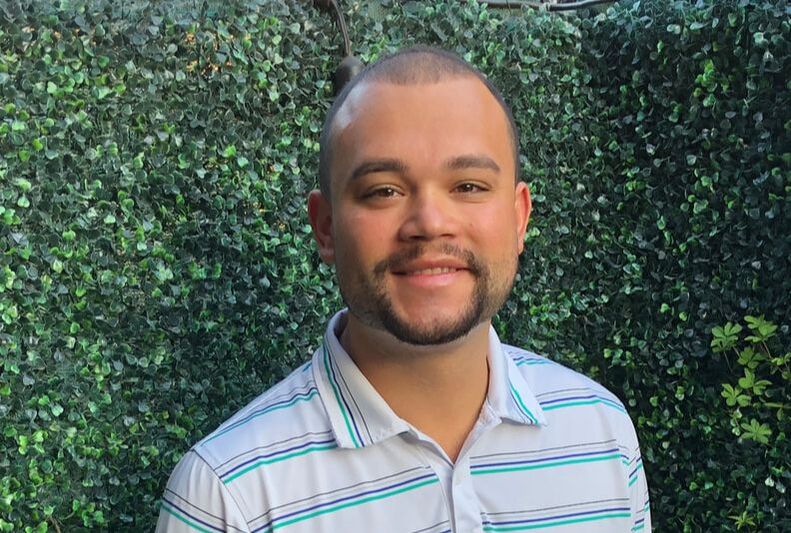
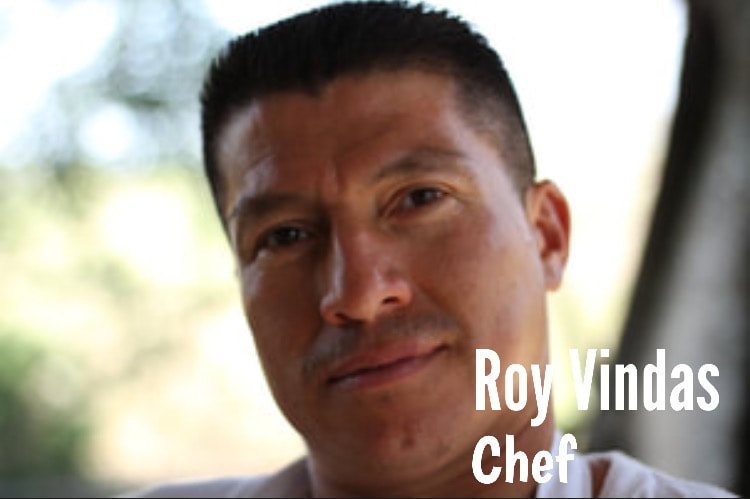

 RSS Feed
RSS Feed